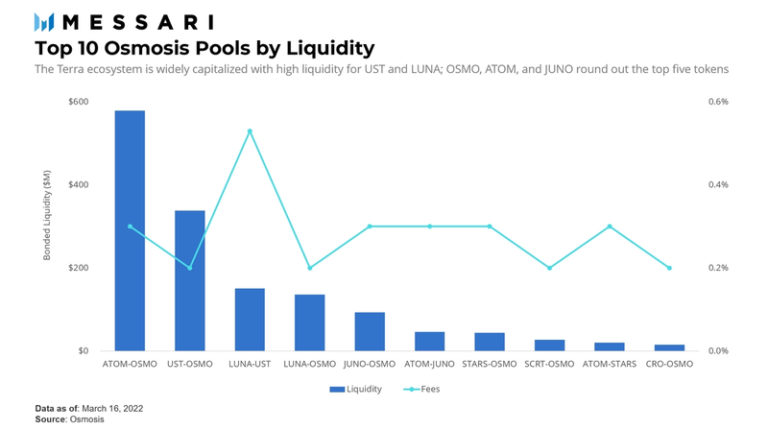TL;DR
- Following the successful PoS upgrade on Ethereum in September, prices of ETH have fallen as narrative shifts back to macro conditions.
- Total Value Locked (TVL) in DeFi reverted -22% from an August spike as regulatory concerns surrounding Tornado Cash and its implications on the wider ecosystem spread.
- Volume in decentralized exchanges (DEXs) has declined in post-Summer months but early data from liquidity pools is positive as users re-stake assets to generate yield.
Our first DeFi market update in a post-Merge world explores key performance indicators in the period leading up to and following Ethereum’s PoS upgrade on September 15. Crypto markets followed the global recovery in market activity from June lows, with ETH experiencing a particularly strong rebound relative to BTC. The price of ETH touched $2k in August as traders increased spot purchases in light of potential airdrops (ETHPoW) and the changing tokenomics following the PoS upgrade. Prices have since dropped to ~$1350 as profit-taking set in and the narrative shifts back to the macro environment.

DeFi tokens have followed broader market patterns but with more amplified price swings. A good indicator is DeFi dominance, which measures the market cap of a basket of top DeFi protocols as a percentage of the total cryptocurrency market. In periods of market decline (e.g. 2Q22) DeFi dominance decreased, but in recent months it has grown to ~1.2% from June lows of 0.8% in line with the market recovery. A possible reason is that DeFi protocols are built on the rails of larger L1 ecosystems, and therefore display an element of leverage relative to the native L1 token.

In spite of this, fundamentals indicate that users are remaining cautious on DeFi overall. Total Value Locked (TVL) in DeFi across chains has reverted -22% from its August spike, back to lows of $55bn. A catalyst for the decline was the regulatory crackdown on Tornado Cash in August. The popular cryptocurrency mixer was investigated by the Office of Foreign Assets Control (OFAC) resulting in smart contracts associated with the protocol being sanctioned. The effects were widespread and brought into question some of the control stablecoin providers have over users. Circle, the organization behind USDC and a popular onramp into DeFi, banned 38 wallet addresses associated with Tornado Cash. Similarly, the community of MakerDAO has recently been split over the proposal to decrease levels of centralized collateral of their stablecoin DAI.
A more recent development is the hack of algorithmic market maker Wintermute for $160m. The attack targeted a vulnerability found in the Profanity-generated vanity address, a form of custom wallet address, used by Wintermute to identify itself to third parties but also to save on high gas fees on Ethereum. Although the company has indicated it has a strong enough balance sheet to absorb the loss, the hack nevertheless put an additional dent in investor confidence.

Muted activity is apparent on decentralized exchanges (DEXs) as well, where volumes have continued to decline in recent months. One explanation is that investors are remaining cautious on altcoins in favor of blue-chip tokens during periods of heightened uncertainty. This would explain why DEXs have continued to lose share to centralized exchanges as displayed by DEX to CEX spot trade volume below. If so, the trend could continue in light of further economic tightening following the latest CPI print for August.


However, daily data from liquidity pools suggest that users are re-staking assets into DEXs following the Merge. Users have largely been taking liquidity out of pools in the weeks leading up to the event, partially to benefit from a PoW airdrop but likely also due to loss of confidence following the Tornado Cash fallout. Early data shows that this trend is starting to reverse which could bring staking levels in line with the relatively stronger levels noted in July.

While DEX volumes have fallen across the ecosystem, it has disproportionately affected smaller exchanges such as Curve. As a result, the leading decentralized exchange Uniswap has increased its share of volume to record levels of ~64% vs. ~48% in July. One reason for Uniswap’s resilience is its deep liquidity relative to other DEXs (and some CEXs) which results in less slippage than with smaller exchanges. The team behind Uniswap has also recently indicated it is exploring financialization of NFTs; a topic that has been under the spotlight with recent liquidation concerns surrounding NFT lending platform BendDAO.

DeFi lenders saw a surge in borrowing ahead of the Merge with daily net borrowing reaching a 3-month high (displayed as negative net borrowing) in September across protocols. The prospect of an ETHPoW airdrop drove the growth in ETH borrowing on Aave in particular. Investors reportedly borrowed 100% of available ETH with rates reaching up to 190% APY, but have stabilized since the community triggered a vote to stop lending. Similar activity was recorded on Hop Protocol and Euler Finance, while some lenders like Compound put a cap on the amount that can be borrowed.


Finally, we observe that monthly DeFi protocol revenue is trending to a YTD low of $60m for September in line with the reduction in TVL and decreased volume on exchanges. Despite the aggregate decline, Aave benefitted from the increased activity on its platform in August with revenues increasing nearly three-fold relative to the prior month.

There have been some notable market movements in the weeks leading up to the Merge, particularly around changes in user behavior in DeFi lending and exchanges. We note that the short term effects of the Merge on price activity have started to dissipate and the narrative is largely shifting back to broader monetary policy. Despite this, innovation within the DeFi ecosystem has shown persistence and early signs of liquidity flowing back into exchanges. Looking ahead, the effects of a successful Merge on Ethereum cannot be overstated, with energy usage down 99% and a deflationary native currency, we are entering a new era of adoption for the ecosystem.
Cryptofunds, market makers, and trading desks can interact with these DeFi protocols with MetaMask Institutional
MetaMask Institutional offers unrivalled access to the DeFi ecosystem without compromising on institution-required security, operational efficiency, or compliance. We enable funds to trade, stake, borrow, lend, invest, and interact with over 17,000 DeFi protocols and applications.
Found this research useful? Connect with the ConsenSys Cryptoeconomic Research team at [email protected]
Disclaimer: ConsenSys Software Inc. is not a registered or licensed advisor or broker. This report is for general informational purposes only. It does not constitute or contain any individual investment advice and is made without any regard to the recipient’s objectives, financial situation, or means. It is not an offer to buy or sell, or a solicitation of any offer to buy, any token or other investment, nor is it intended to be used for marketing purposes to anyone in any jurisdiction. ConsenSys does not intend for any person or entity to rely on any facts, opinions, or ideas, and any financial or economic commentary expressed in this report may not be relied upon. ConsenSys makes no representations as to the accuracy, completeness, or timeliness of the information or opinions in this report and, along with its employees, does not assume any responsibility for any loss to any person or entity that may result from any act or omission based upon this report. This report is subject to correction, completion, and amendment without notice; however, ConsenSys has no obligation to do so.





